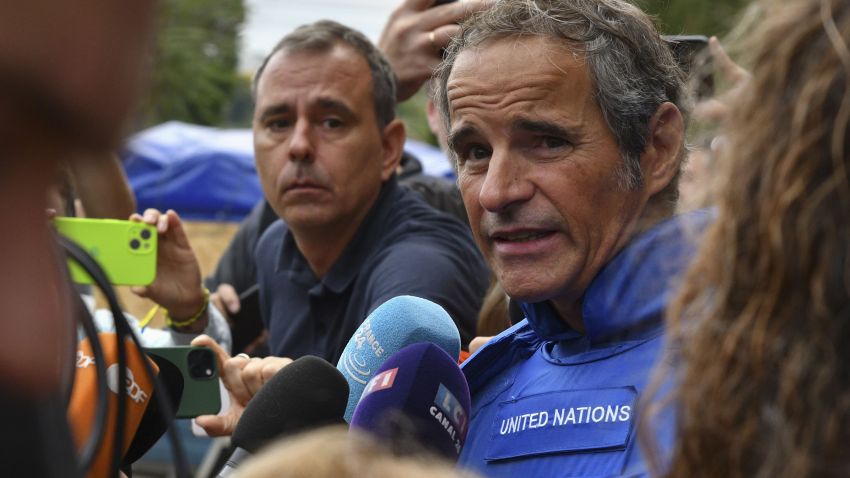The International Atomic Energy Agency, or IAEA, the United Nation’s nuclear-focused body, was intended to be a technical agency supporting the development of peaceful uses of nuclear energy. In recent weeks, however, the IAEA has found itself in the thick of two global political crises—concerns about combat operations around Ukraine’s Zaporizhzhia nuclear power plant and efforts to limit Iran’s nuclear program to ensure it does not develop nuclear weapons.
Rafael Grossi, the agency’s director-general, has asserted himself as a powerful player in both cases. He has successfully insisted that IAEA inspectors be allowed to visit and remain at the Zaporizhzhia plant—Europe’s largest—personally crossing through battle zones to get to the facility. And he has joined the U.S. in rebuffing Iranian demands that the agency close its investigation of suspicious nuclear material found in Iran, while managing to do so without antagonizing Tehran.
Grossi’s assertive approach marks a departure from his predecessor, Yukia Amano, who was criticized for his handling of the Fukushima nuclear accident in 2011 as well as his approach to Iran’s nuclear program. For now, Grossi has managed both files with dexterity, but his ongoing success will depend on his ability to avoid alienating any of the parties involved, which will be no easy feat.

